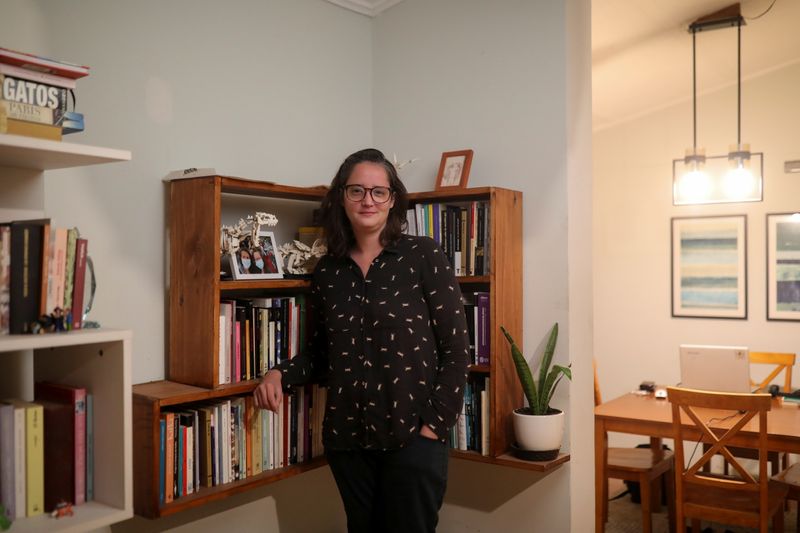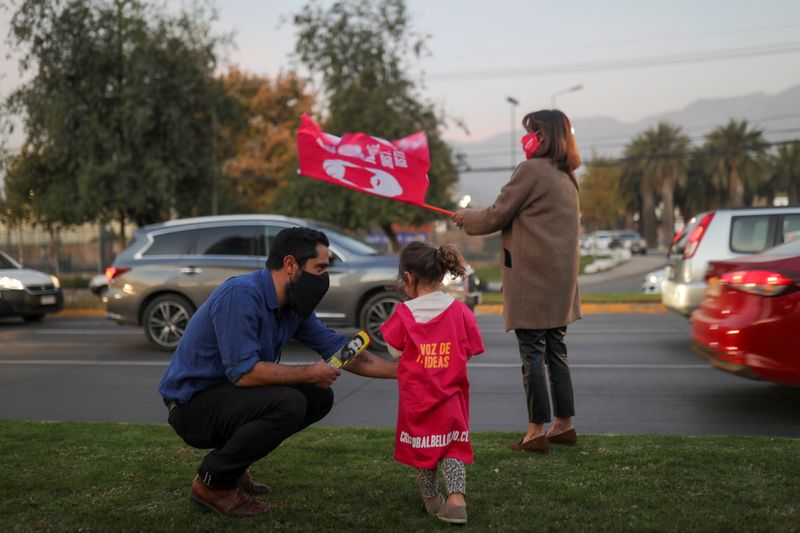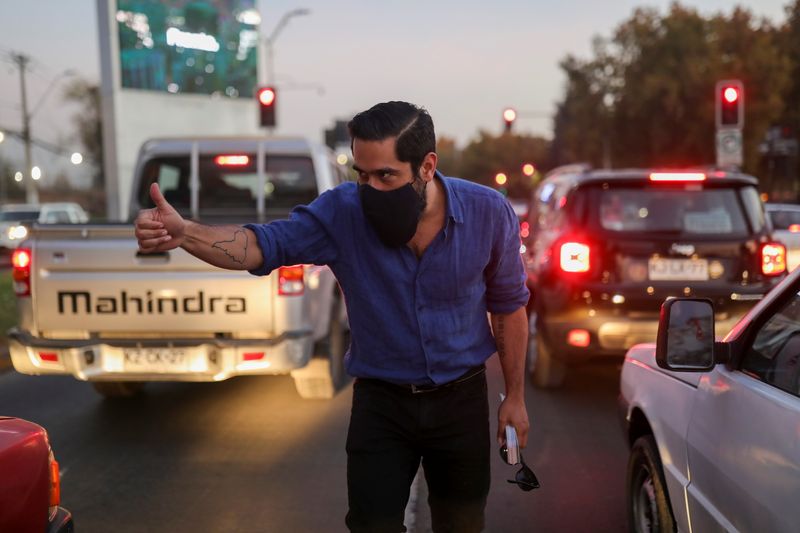SANTIAGO (Reuters) – On a crisp spring day in 2019, Cote Cumplido took up a banner and joined more than a million people marching through the streets of the Chilean capital Santiago to demand greater equality and major changes to its political system.
Now the 33-year-old is handing out flyers with her own name on them on, hoping to be elected this weekend to a body of representatives who will over the next year lead an historic rewrite of the Andean country’s constitution.
“Those protests were like an avalanche, the expression of a fury that built up over years at the neoliberal system,” said Cumplido, a historian at Chile’s National Library who describes herself as a feminist and says she wants greater citizen representation in politics.
“We need to deepen democracy, make it more agile, more in tune with what’s happening today and that has really driven my conviction that we need a new constitution.”
On Saturday and Sunday, Chileans will vote to pick 155 constitutional assembly members to draft a new constitution to replace Chile’s charter, which was drafted during the 1973-1990 dictatorship of Augusto Pinochet.
The historic process is being eyed nervously by investors who have found safe haven in a turbulent region in Chile’s free market system, and with high hopes by the 78% of the people who voted in favor of such change in October last year.
Cumplido is among 1,278 prospective candidates, who include politicians, activists, academics, fashion models, TV personalities and journalists.
Half of the assembly will be male and half female, while 17 seats are reserved for representatives of Chile’s indigenous communities. Often living in the margins on society far from the capital, they are unrecognized in the present charter and are seeking changes including the teaching of indigenous history in schools and greater recognition for traditional medicine.
‘WE HAVE TO BE THERE’
In a bid to stand out in a crowded field, candidates have taken extreme steps to project what they stand for.
Marcela Cubillos, a former environment and education minister in conservative President Sebastian Pinera’s government, is hoping to represent the upmarket areas of Santiago – the only parts of the country who voted in October to reject constitutional change.
She has embedded her campaign pamphlet with basil seeds that voters can plant in their gardens and emblazoned it with the slogan “We Have To Be There.” The Chilean right is seeking to win at least a third of the seats in the new body, which would enable it to block changes it regards as too radical.
Delegates will spend a maximum 12-month period debating and crafting the new text, with a two-thirds majority required for each key decision.
Cristobal Bellolio, a radio host and academic who sports a hipster beard, is focusing on garnering votes from young, educated Chileans who are supportive of change.
As he campaigned at traffic lights in the middle-class Santiago suburb of La Reina on Wednesday, he was received by a mix of cheerful horn honking and people refusing to wind down their windows to accept a pamphlet.
Maite Labra, 22, pushing a stroller nearby, eyed the flag-waving warily. “To be honest I have no idea what it’s about this weekend,” she said. “I voted for a new constitution, but I slightly lost track of what was happening.”
Bellolio said with so much time having elapsed since the fiery 2019 protests, it was a challenge to get people to engage, especially with the backdrop of the coronavirus pandemic.
“A lot of people are just not in election mood,” he said. “The pandemic, the vaccination process, the economic crisis, the (November) presidential election… There are too many conversations in parallel, so it’s difficult to get them to double down on this. But the stakes are high.”
A CONSTITUTION TO UNITE US
In the 2020 referendum, four-fifths of voters said they wanted the new charter to be drafted by a specially elected body of citizens, rather than by a mixed convention of lawmakers and citizens, a reflection of general mistrust in Chile’s political class.
But a significant number of politicians have resigned their positions to be able to run.
Among them is Hernan Larrain, the former head of center-right party Evopoli and adviser to Pinera during his first term in office.
He said Chilean politicians had been too busy fighting amongst themselves to enact urgently needed reforms of problem areas like pensions, and now had a responsibility to set things right.
“If you don’t have political parties, you have the populism and strong-men that are so typical of our region,” he said. “The 1980 constitution divided us because of its origin, this constitution must unite us and we need to find consensus.”
Preliminary results revealing whether candidates affiliated with Pinera’s center-right coalition secured a third of seats in the body are due late on Sunday night.
A referendum on the new constitution is set to be held in about a year’s time.
Cumplido said that at every stage, transparency and good governance would be key.
“People are even more vulnerable after the pandemic and there is more anger than when protests first broke out,” she said. “We have to be very careful and seek to generate trust with this process so that we carry the people with us.”
(Reporting by Aislinn Laing, Editing by Rosalba O’Brien)


























